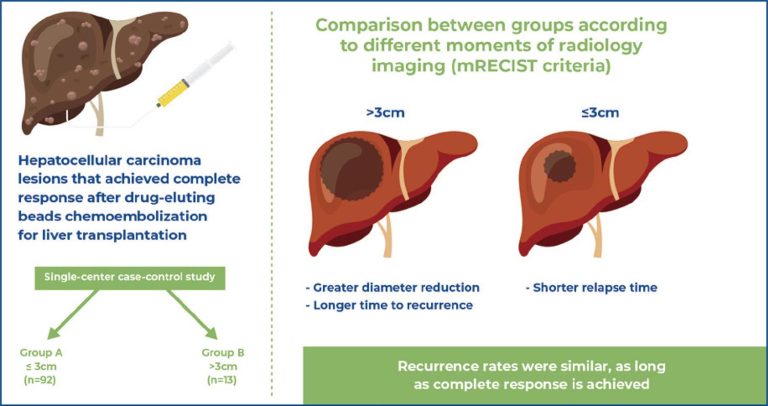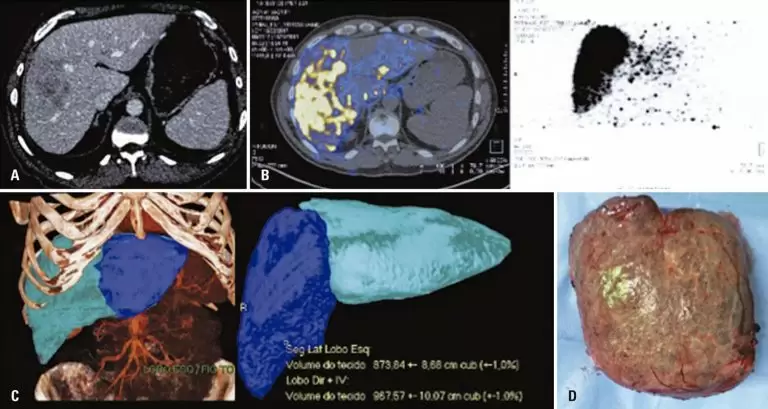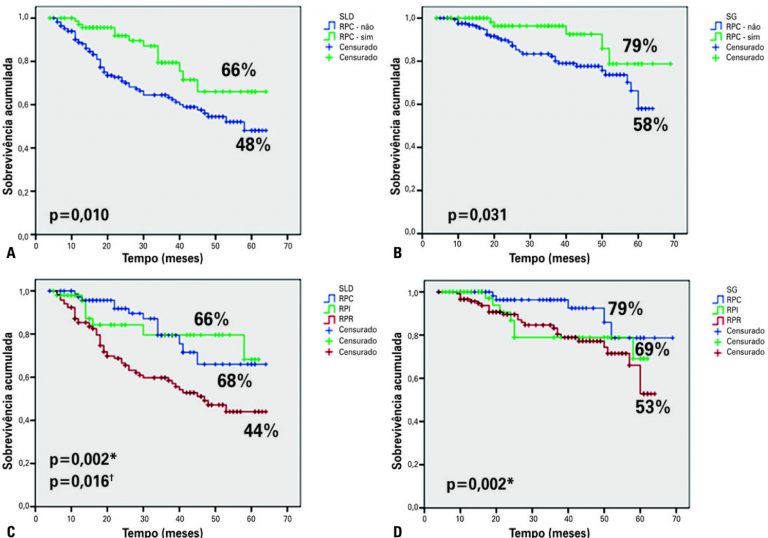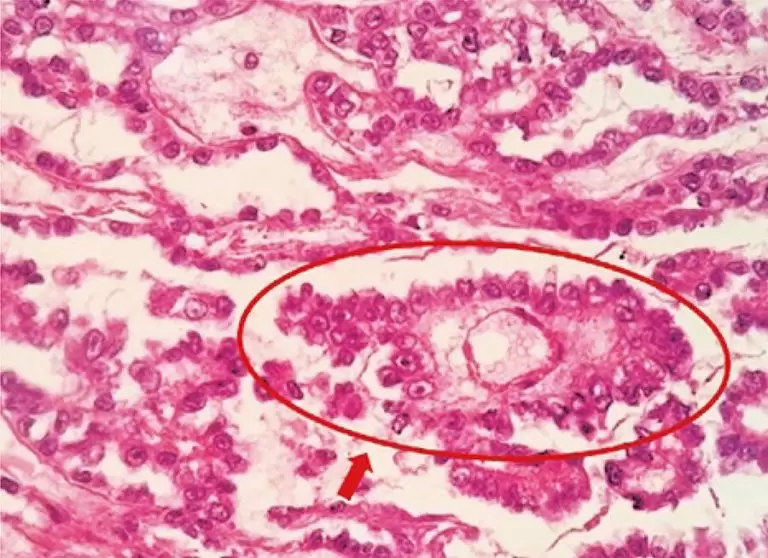19/Oct/2023
Radiological characteristics of hepatocellular carcinoma that achieved complete response after chemoembolization with drug-eluting beads for liver transplantation planning
einstein (São Paulo). 19/Oct/2023;21:eAO0307.
View Article19/Oct/2023
Radiological characteristics of hepatocellular carcinoma that achieved complete response after chemoembolization with drug-eluting beads for liver transplantation planning
DOI: 10.31744/einstein_journal/2023AO0307
Highlights Once complete hepatocellular carcinoma necrosis is achieved, the diameter of the hepatocellular carcinoma decreases significantly, regardless of its initial size. Hepatocellular carcinoma >3cm showed greater reduction and longer time to recurrence. Hepatocellular carcinoma ≤3cm exhibited a shorter time to relapse. Recurrence rates were similar, as long as complete response was achieved. ABSTRACT Objective: To describe the radiological characteristics of hepatocellular carcinoma (HCC) lesions that achieved a complete response following drug-eluting bead transarterial chemoembolization (DEB-TACE) preceding liver transplantation. Methods: This […]
Keywords: Carcinoma, hepatocellular; Chemoembolization, therapeutic; Liver neoplasms; Living donors; Neoadjuvant therapy; Radiology, Interventional; Response evaluation criteria in solid tumors
19/Feb/2020
Transarterial radioembolization for liver tumors as neoadjuvant therapy: three case reports
DOI: 10.31744/einstein_journal/2020RC4990
ABSTRACT Transarterial radioembolization (TARE) with yttrium-90 microspheres is a palliative locoregional treatment, minimally invasive for liver tumors. The neoadjuvant aim of this treatment is still controversial, however, selected cases with lesions initially considered unresectable have been enframed as candidates for curative therapy after hepatic transarterial radioembolization. We report three cases in which the hepatic transarterial radioembolization was used as neoadjuvant therapy in an effective way, allowing posterior potentially curative therapies.
Keywords: Cholangiocarcinoma; Embolization, therapeutic/methods; Liver neoplasms; Neoadjuvant therapy; Radioembolization
17/Jan/2019
Hormone receptor-negative as a predictive factor for pathologic complete response to neoadjuvant therapy in breast cancer
einstein (São Paulo). 17/Jan/2019;17(1):eAO3434.
View Article17/Jan/2019
Hormone receptor-negative as a predictive factor for pathologic complete response to neoadjuvant therapy in breast cancer
DOI: 10.31744/einstein_journal/2019AO3434
ABSTRACT Objective To define a predictive factor for pathologic complete response, compare the oncologic outcomes associated with the degree of pathologic response after neoadjuvant chemotherapy, and to analyze pathologic complete response as a prognostic factor for overall survival and progression-free survival. Methods A retrospective study of patients admitted to Hospital Estadual Mário Covas and Hospital Anchieta from 2008 to 2012, with locally advanced breast cancer. Hormone receptor status, HER2 status, histologic and nuclear grade, age upon diagnosis and histological type […]
Keywords: Breast neoplasms/pathology; Neoadjuvant therapy; Predictive value of tests; Prognosis; Survivorship (Public Health)
11/Sep/2017
Yolk sac primary tumor of mediastino: a rare case in a young adult
DOI: 10.1590/S1679-45082017RC4008
ABSTRACT Germ cell tumors are rare neoplasms that mostly occur in the gonads, although they can also affect other body sites, especially the anterior mediastinum (50 to 70% of all extragonadal germ cell tumors). We report a case of a primary mediastinal yolk sac tumor, a rare and aggressive germ cell tumors subtype. This was a 38-year-old man who was admitted to Hospital do Servidor Público Estadual “Francisco Morato de Oliveira”, complaining about dyspnea and dry cough for 1 year. […]
Keywords: Case reports; Endodermal sinus tumor/drug therapy; Mediastinal neoplasms; Neoadjuvant therapy; Neoplasms, germ cell and embryonal
31/Jan/2014
Neoadjuvant chemotherapy and pathologic response: a retrospective cohort
DOI: 10.1590/S1679-45082013000400007
OBJECTIVE: To evaluate the complete pathologic response attained by patients diagnosed with locally advanced breast cancer submitted to neoadjuvant chemotherapy based on the doxorubicin/cyclophosphamide regimen followed by paclitaxel. METHODS: A retrospective cohort of patients with locally advanced breast cancer, admitted to the Hospital de Câncer de Barretos between 2006 and 2008 submitted to the doxorubicin/cyclophosphamide protocol followed by paclitaxel (4 cycles of doxorubicin 60mg/m² and cyclophosphamide 600mg/m² every 21 days; 4 cycles of paclitaxel 175mg/m² every 21 days). The following […]
Keywords: Cyclophosphamide; Doxorubicin; Neoadjuvant therapy; Neoplasm of the breast; Paclitaxel; Treatment outcome






